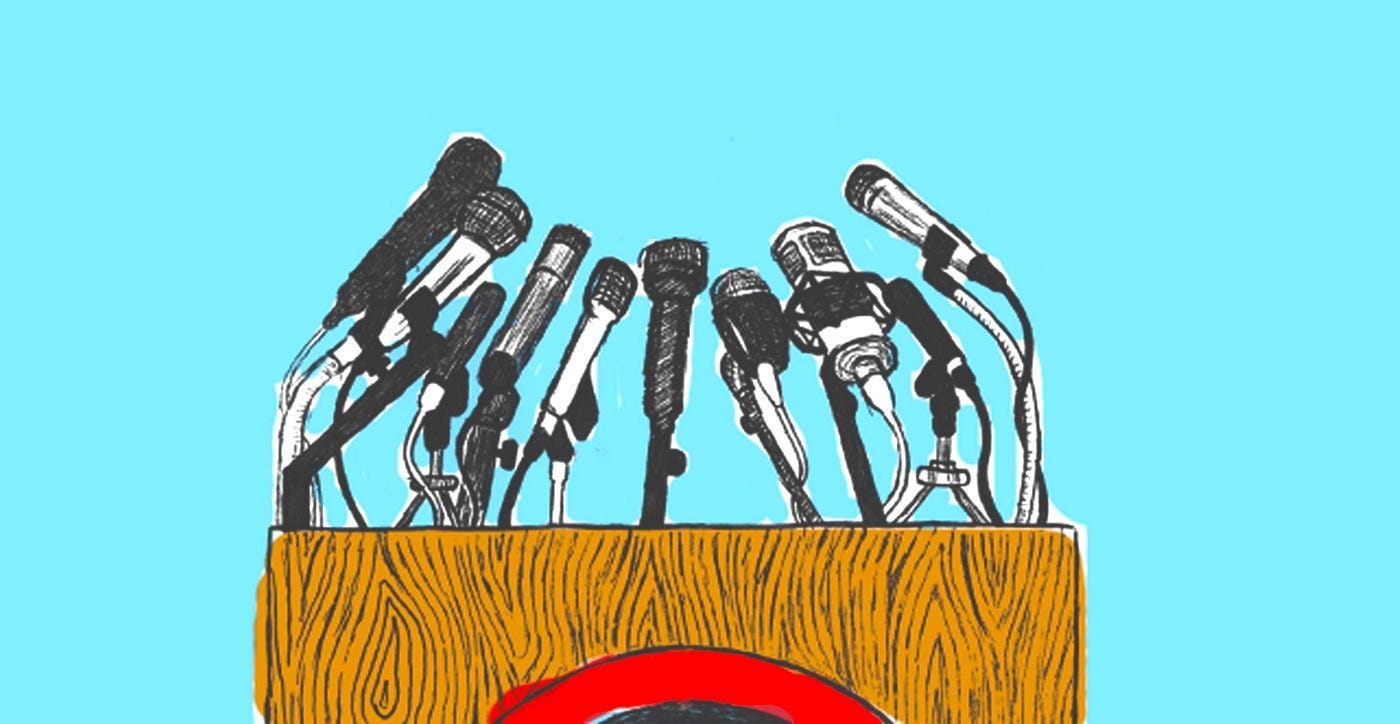Last year I was in a meeting with a very upset client of mine.
Walking into their brand new office, with woodgrain finish, brand new coffee machine and views of the Grand Prix track was daunting.
The size of his work desk was the size of his ego.
His business partner walked into the room with his slicked back hair, Armani Suit and two buttons undone to give that relaxed look. The topic of the meeting was sales leads (don’t let that bore you, though).
I was there to talk to these two gentlemen about sales leads with a colleague and the lack of them. The client was expecting 2000 leads per month, had launched their website a few weeks prior, had no social media presence and their 4–5 major competitors all had billion dollar businesses.
It was a tale of David and Goliath and they were not playing the part of either.
Before the scheduled time I agreed that my colleague would run the meeting to build up some experience in dealing with heated escalations. I was in the meeting only to observe, add some credibility and give him feedback at the end which would help him.
The client started off by telling us to talk about how we had got to where we were on that day while we looked at each other over a huge desk with egos ready to roar.
My colleague began fumbling around to try and explain it, but the words were not coming out. He opted to say as much as he possibly could. The two business owners were distracted the whole time.
Every few minutes the door would swing open and the receptionist would whisper something and then walk out.
Then one of the directors answered a call and said loudly “I’ll be there shortly” signaling that he had more important places to be at.
While the urge to talk was high, I sat in silence.

Once my colleague finished his summary, they began ripping us to shreds.
They said that they liked dealing with the two of us but that the people we work with were no good, our product was broken, our strategy was wrong and that they were mis-sold. The feedback was gut-wrenching for the two of us given our weakness towards being obsessed with having happy clients.
The back and forth on both sides filled up most of our short meeting.
Progress was not being made and we were losing the fight to what I’d describe as a weak argument. In short, what they were expecting was impossible and if they thought about their concept of 2000 leads a month from a few hundred dollars, they’d see what we could see.
The meeting was nearly over and I’d still said nothing.
My body language told the story the way Benjamin Franklin would of. Then, in an instance, one of the directors said:
“What do you think? We haven’t heard you speak?”
I purposely left a few moments of silence. The two directors stopped being distracted by their phones for a moment.
Then I said something that could have been career ending for me:
“Gentlemen, 2000 leads a month is total bullshit. I’d be lying if I sat here any longer and pretended that we can ever deliver that to you. The only way we can move forward is if we agree to be honest with each other from this point on.”
There was a further silence.
I’d struck a nerve by calling out the elephant in the room that can only be spotted by sitting in silence and watching everybody react.
It was no longer about egos.
Honesty was what was missing and everyone knew it once I stated the obvious and used a swear word to emphasize my point. All I said for that entire meeting were those two sentences. I didn’t speak another word.
With those two sentences, everyone’s thoughts were interrupted. The initial intent of the client was to discontinue our service and potentially engage their lawyer. By the end of the meeting, we had rapport and an understanding that we’d work to find a resolution.
In the Uber on the way back to the office, my colleague asked for feedback and he wasn’t talking about what he’d done well. I thought about it for a moment and tried to come up with something that would help him next time.
The power of saying less taught us both the following:
You’ll learn more by listening
In a meeting that involves one or more people who are angry, having you talk your mouth off doesn’t build momentum.
Once you listen for long enough, you’ll hear the problem on repeat and then when the time is right, all you need to do is clearly articulate it to the room and leave some silence for people to contemplate it.
The idea is not to fill up the allocated time with your talking
When people set up meetings, they focus on what they’re going to say and how they can cover off on as much as they can by the end of the meeting.
If the outcome involves influencing the rest of the people in the meeting to do something, letting them speak should be the focus. When people are heard first, they tend to listen to what you say when it’s your turn.
Silence breeds curiosity and curiosity leads to a conversation where someone will listen to you.
Length of time means nothing
A quality outcome is better than a long meeting that leads nowhere, where everyone is being candid and honesty is not the center of attention.
Efficiency and time management in meetings has become the focus when the aim shouldn’t be productivity; the outcome should be to get a solution, an answer or an outcome.
Short meetings hold a lot of value
When time is short, you tend to be able to get to the heart of the issue quicker and ignore pleasantries, unnecessary stories and general time wasting.
Short meetings create focus.
The one who speaks less has the power
Eventually, the members of the meeting will be dying to talk to the one person that has said nothing.
I’ve been in a few meetings over the years with entrepreneurs who achieved more success than I could muster up in twenty-five lifetimes and one thing has stood out to me:
These tycoons of business say less.
Saying less forces people to be intrigued by you and this holds tremendous power which can solve some of the biggest challenges we face as a human race.
Honesty will get you there faster
The meeting I described above will show you that when everyone in a room commits to being honest, an outcome can be reached in record time.
Stating how important honesty is in a meeting might seem useless, but when it’s done properly, it reminds everybody what matters. Transparency is sexy and people appreciate it more than you think.
Interrupt the pattern of the meeting
As humans, we tend to repeat patterns. In the context of a meeting with an angry client, this can lead both sides to focus on being right and defending their point of view with their ego.
The way to break the pattern is to use a few short sentences to interrupt everyone’s thinking. Saying the one thing that everyone is too scared to say is the best solution I’ve found.

Once the pattern of the meeting is broken, it forces people to think more deeply. When we’re forced into these states, we find hidden solutions, empathy and our human side. Pattern interrupts open the door for rapport.
Notice the body language of those who sit in silence
It’s an excellent reflection of how the meeting is going. The ones who sit in silence may not speak any words, but they’re telling you what they think by the way they’re sitting/standing and the position of their arms.
The one that says the least may hold the answer
And that person may have the lowest status or title.
The one in a meeting saying the least can often have a very different perspective. The least qualified person may hold the most wisdom.
I walk into meetings all the time being the least qualified and I’ve found that to be a superpower more often than not.
When you don’t have knowledge or experience blocking your perspective, you can see problems and solutions in a different light.
Being the least qualified has also helped me dial my ego down and that’s translated to better outcomes.
Practice saying less. Watch. And then be surprised.
This instalment of Unfiltered is free for everyone. I send this email weekly. If you would also like to receive it, join the 60,000+ other smart people who absolutely love it today.
👉 If you enjoyed reading this post, feel free to share it with friends!





Speaking less keeps the power in your hand. Great wisdom Tim🙏
It’s always best to shut the hell up and just take in the room. There isn’t always a need to say anything. Thanks for another badass post, Tim!